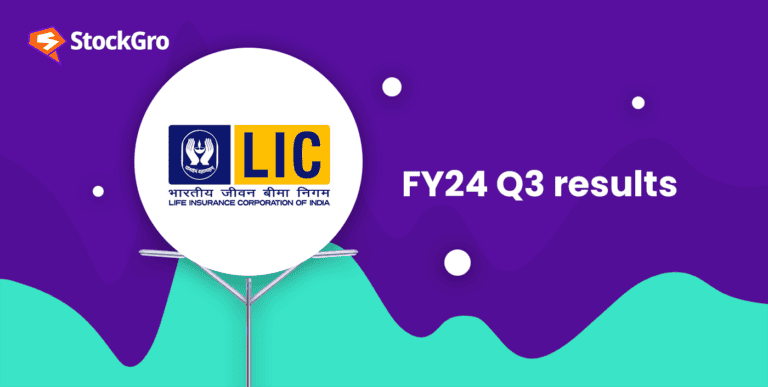
Over a few years, an exceptional surge in the gig economy has been witnessed. The gig economy’s emergence has reshaped the way individuals earn their living. The growth has resulted in diverse opportunities for individuals to earn income in various ways:
- Freelancing
- Ride-sharing
- Other on-demand services
It can be stated that it offers the utmost flexibility to become a gig worker. However, a gig worker may face huge challenges while managing their variable income streams. That’s where the discussion of financial literacy comes into being.
Note that financial literacy has become quite important as it ensures prosperity and stability for those who navigate the gig economy’s unpredictable terrain. If you wish to learn about gig economy financial management – find out more in this post.
Also Read: Financial Literacy for Creative Professionals: Artists, Writers, Musicians, etc.
An introduction to the gig economy – What do you mean by this economy?
So what’s the Gig economy, and is there any point of financial literacy?
The gig economy is the on-demand or freelance economy. It includes various short-term and flexible jobs. From food delivery and writing to graphic designing and more – there are several fields where gig workers can engage. It entirely depends on every gig worker’s skills and preferences.
It’s not like the conventional full-time employment where workers need to perform only one task. Gig professional engages in various tasks based on their proficiencies and qualities. Gig work may indeed lack stability in income. Note that earnings may fluctuate based on aspects like the following:
Demand: The demand of a certain marketplace evaluates the income in the gig economy. The demand for a skill or service also impacts your earning potential. The demand for certain skills or the marketplace is based on emerging trends and market capacity.
Seasonality: This parameter plays a crucial role in determining gig workers’ income in this type of economy. Various sectors in the gig economy may experience demand fluctuations depending on holidays and consumer behaviour (and seasonal trends).
Competition: The next aspect is competition which evaluates gig workers’ income. As more people join a specific market, the competition increases. So, gig workers may find themselves in the crowded job market.
Amidst the fierce competition, factors that influence your earning potential are reputation and service quality (also pricing). So, workers need to stay abreast of the market trends to outshine their competition and improve income opportunities.
Why financial literacy is significant?
Financial literacy has become crucial for gig workers. It helps maintain stability for workers to accomplish financial security. Now what do you mean by financial literacy?
Financial literacy is one’s capability of understanding and effectively using different financial proficiencies (like financial management and budgeting). Someone who’s financially literate understands the relationship with money. It serves as the beginning point to the lifelong journey of understanding why and how finances matter.
Budgeting in the gig economy is important. So, the earlier you begin understanding financial literacy, the better and more knowledgeable you become.
It’s the skills and knowledge required for making well-informed financial decisions for budgeting and debt managing (investing and saving). Being financially literate allows gig workers to understand the importance of financial literacy.
Also Read: The Importance of Financial Literacy for Immigrants
Tips to manage variable income in the gig economy – Things to consider
Gig workers face a lot of challenges due to the unpredictability of income. Note that gig workers are not salaried employees. So, they experience fluctuations in their earnings.
Altogether, managing irregular income might seem challenging in the gig economy. However, certain variable income strategies help you improve your financial status and get income volatility solutions:
Prepare a budget plan
The gig worker financial planning is to prepare a budget. You need to monitor your income to understand how much you earn. After this, you can create a budget to plan for the necessities like:
- Housing
- Food
- Transportation
- Savings
- Utilities
- Optional expenses (based on your income)
Opt for a passive income source
Why is it that you only depend on just one single source of income? Besides your gig work, you can look for a secondary income source. That way, you can diversify your income sources. You can explore a myriad range of opportunities to work on different. You may pursue another source of income for side hustle money management and get a steady income flow.
Save some for emergency purposes
Saving for freelancers is an important aspect. You can keep aside a part of your income every month. That’s your emergency fund. It covers the unexpected expenses like:
- Medical expenses for uncertain conditions
- Sudden car repairs
- Utility bills
Just in case you earn less in one month through your gig work, you can use your emergency fund for variable income to cover expenses. Or what if a medical emergency occurs? You might use the emergency fund for uncertain situations. With the emergency fund – you can cover a minimum of three to eight months’ expenses.
Tax planning
You must monitor your costs and earnings to understand your tax liabilities. It’s best to keep aside a minimum portion of your income. You may also hire a tax consultant to understand more about deductions and reduce your tax liabilities.
Have a retirement plan
Gig workers can prepare a retirement plan. They can get individual retirement account plans. You might start investing in retirement plans by saving a portion of your account each month.
Also Read: Financial Literacy for Nonprofit Organisations: Budgeting and Sustainability
Finally-
So, you have understood how financial literacy for gig workers helps you navigate the challenges of tracking variable income in such an economy.
You may use the gig economy savings tips and comprehend your income sources and budget effectively. That way, you can plan for the future. As gig workers, you can get financial protection and stability with the above freelancer finance tips.

